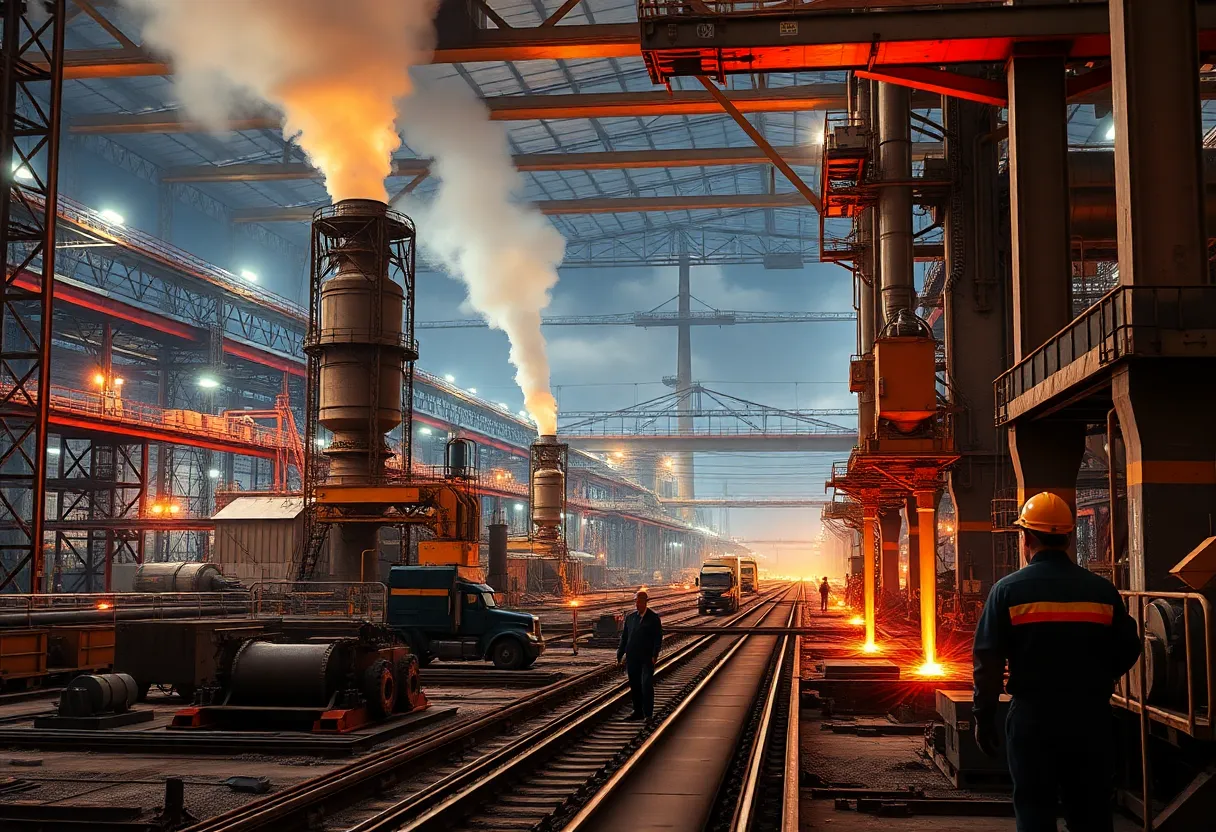News Summary
Pennsylvania Senate President Kim Ward advocates for the $15 billion acquisition of U.S. Steel by Japan’s Nippon Steel, emphasizing job preservation and economic growth in Pennsylvania. With a personal connection to the steel industry, Ward plays a vital role in negotiations with stakeholders, including the White House, to ensure American interests are prioritized in the deal. While facing concerns from the United Steelworkers Union about trade practices, the deal is perceived as an opportunity for U.S. Steel’s future and job security in the region, now bolstered by governmental oversight arrangements.
Pennsylvania Senate President Kim Ward has emerged as a pivotal advocate for the nearly $15 billion acquisition of U.S. Steel by Japan’s Nippon Steel. This controversial deal promises to bolster the local economy while maintaining U.S. Steel’s headquarters in Pittsburgh, Pennsylvania.
Ward, who is 68 years old, has strong personal ties to the steel industry—her father was a specialty steel machinist who lost his job due to the decline of local steel production. This background has fueled her passion for job preservation within her district. She played an instrumental role in negotiations, actively engaging with stakeholders, including the White House, to ensure that local jobs remain a priority in this acquisition.
The acquisition deal, involving a significant $15 billion transaction, includes provisions to appoint an American Chief Operating Officer (COO) and ensures a majority of the board will comprise American members. This commitment aims to alleviate some concerns about foreign ownership of a key American industry, particularly in a state with a storied history in steel production.
Finalizing the acquisition has been no small feat. It took over 18 months and initially faced opposition from the previous administration, which blocked the deal due to apprehensions voiced by the United Steelworkers Union concerning Nippon Steel’s trade practices. However, the landscape shifted with President Donald Trump signing the deal into law earlier this month, citing it as essential for the future of U.S. Steel and beneficial for Western Pennsylvania’s economy.
Despite the economic promise, the United Steelworkers Union has voiced continuing concerns regarding Nippon Steel, particularly related to its history of unfair trade practices. However, it is noteworthy that some individual steelworkers recently attended a celebratory rally with Trump, adding a layer of complexity to the union’s position on the matter.
Additionally, Trump negotiated what has been termed a “golden share” arrangement. This gives him the authority to appoint a board member for Nippon Steel and oversee specific corporate decisions, effectively inserting a level of U.S. governance in the foreign acquisition.
Ward’s unwavering commitment has set her apart from other Pennsylvania officials, many of whom have been more reserved in their public support. This distinction highlights both the political pressure surrounding the deal and the significant role that local advocacy plays in shaping economic outcomes for the region. Ward often communicated with Nippon Steel executives and White House officials, sometimes accommodating the 13-hour time difference with Japan by rising early for discussions.
Other officials in Pennsylvania, including U.S. Senator Dave McCormick and Governor Josh Shapiro, also supported the acquisition, but some adopted a more cautious stance due to the political ramifications of endorsing a foreign buyout of a major domestic entity.
Ultimately, this acquisition aims to funnel $11 billion into U.S. Steel’s operations through 2028, which is expected to enhance production capacity and support U.S. infrastructure projects while navigating existing tariffs. Nippon Steel is now better positioned to play a significant role in both domestic production and alleviating some supply concerns in the market.
The political landscape surrounding the acquisition has unveiled challenges in securing international investments in essential U.S. industries, underscoring the intricate balance between fostering economic growth and ensuring domestic job security. Nippon Steel’s approach included extensive lobbying efforts and building community connections within Pennsylvania to solidify local backing.
Previous attempts to merge the companies encountered substantial political opposition, emphasizing the challenges foreign entities face in navigating U.S. regulatory frameworks. The deal has sparked discussions regarding future foreign acquisitions, particularly about the necessary government oversight agreements that may become standard practice to protect American interests.
Deeper Dive: News & Info About This Topic
- Pittsburgh Post-Gazette
- Wikipedia: Nippon Steel
- The Washington Post
- Google Search: Nippon Steel US Steel acquisition
- The Guardian
- Encyclopedia Britannica: Nippon Steel
- ABC News
- Google News: Nippon Steel US Steel finalized
- WTAE
- Google Scholar: Nippon Steel US Steel acquisition

Author: STAFF HERE PHILADELPHIA WRITER
The PHILADELPHIA STAFF WRITER represents the experienced team at HEREPhiladelphia.com, your go-to source for actionable local news and information in Philadelphia, Philadelphia County, and beyond. Specializing in "news you can use," we cover essential topics like product reviews for personal and business needs, local business directories, politics, real estate trends, neighborhood insights, and state news affecting the area—with deep expertise drawn from years of dedicated reporting and strong community input, including local press releases and business updates. We deliver top reporting on high-value events such as Mummers Parade, Philadelphia Flower Show, and Thanksgiving Day Parade. Our coverage extends to key organizations like the Greater Philadelphia Chamber of Commerce and United Way of Greater Philadelphia, plus leading businesses in telecommunications, food services, and healthcare that power the local economy such as Comcast, Aramark, and Children's Hospital of Philadelphia. As part of the broader HERE network, we provide comprehensive, credible insights into Pennsylvania's dynamic landscape.





